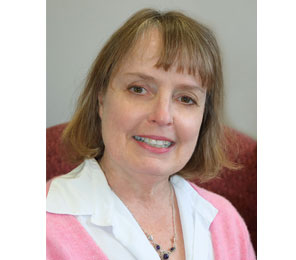 |
|
Jeanne B. Lawrence, PhD |
Jeanne B. Lawrence, PhD, will assume the role of interim chair of what will be renamed the Department of Cell and Developmental Biology, reflecting both the strengths in mammalian development and the evolution of study in the field, Terence R. Flotte, MD, the Celia and Isaac Haidak Professor in Medicine, executive deputy chancellor, provost and dean of the School of Medicine, has announced.
A member of the department since 1985 and a professor since 2001, Dr. Lawrence worked with Dr. Flotte to develop a transition plan that supports the department’s innovative and unique strengths.
As announced earlier this year, Gary S. Stein, PhD, the Gerald L. and Zelda S. Haidak Professor and chair of cell biology, will leave UMass Medical School in the fall for a position directing the Vermont Cancer Center and chairing the department of biochemistry at the University Of Vermont College Of Medicine.
“Cell biology has a central role in many educational, academic, research and training activities at UMMS and benefits from a resourceful, enterprising and productive faculty committed to our mission,” said Flotte. “Dr. Lawrence is an internationally recognized leader in the study of chromosome regulation by non-coding RNA and nuclear and genome organization. Having trained in the fields of human genetics and genetic counseling, she has had leadership roles in medical genetics education at UMMS for nearly 20 years.”
Lawrence’s interest in chromosome structure and regulation has been a theme throughout her career. With David Ward, she has been honored for her work developing tools for the detection of single copy genes and nuclear RNAs.
Her lab’s publications include initial demonstration of cell type-specific gene organization with nuclear sub-domains; the novel biology of a non-coding RNA that coats a whole X-chromosome structure to induce its silencing; and a new architectural role for a large non-coding RNA to scaffold a nuclear body. Recently, her lab’s work on epigenetic chromosome regulation in stem cells led to studies regarding unanticipated roles of repeat sequences in normal chromosome regulation and deregulation in cancer, and the implications for chromosomal dosage disorders, particularly trisomy 21 in Down Syndrome.
Lawrence is the recipient of high innovation research awards from the National Institutes of Health, including a Research Career Development Award from the National Center for Human Genome Research, in addition to career awards from the American Society of Cell Biology, the German Society for Biochemistry and the Muscular Dystrophy Association, as well as the Women in Health Science Achievement Award from UMMS.
“Dr Lawrence’s plans for the department include the support of interdepartmental interest groups in epigenetics and stem cell biology; her own work and career here emphasize multidisciplinarity and the spirit of new inquiry,” said Flotte. “Please join me in expressing appreciation for her willingness to take on this role with enthusiasm and imagination.”
Lawrence’s appointment will be effective in July.